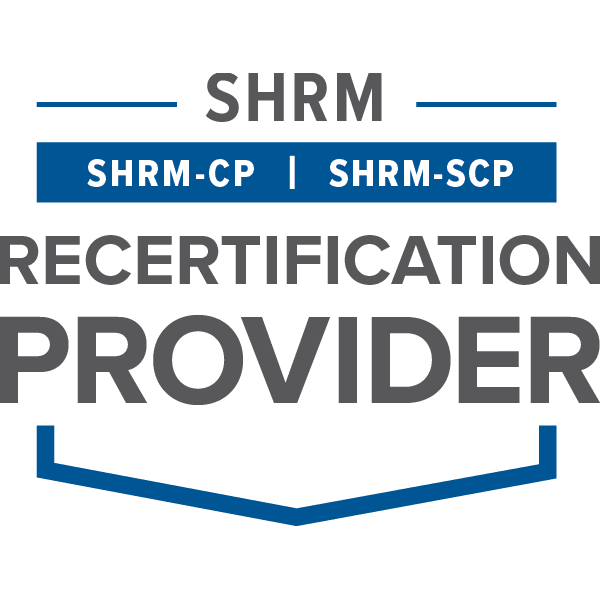What to Expect from De-Escalation Training for Government Workers
Learn important de-escalation skills that can help you deal with stressful situations or a crisis in frontline public-facing government settings. PLA’s online training course includes:
- A basic sequence for de-escalating people
- Effective tools for emotional self-management
- The basics of escalated conflict
- How to attend to people’s psychological needs
- Learning Assessments & Certificate of Completion
Course Description
Our asynchronous Government De-escalation Training Workshop utilizes our industry-leading methods, which have been successfully taught and applied to participants in more than 60 industries around North America, from small retail shops to Fortune 100 companies.
Course Curriculum
- Overview of basic escalated conflict theory and psychology
- Practical self-regulation and emotional self-management techniques
- Learn to put care before position or policy enforcement without eliminating policies
- Learn to utilize basic conflict psychology in de-escalating conflicts
- Reflective listening techniques
- How and when to implement reassurance during de-escalation
- Using policy or rules explanation effectively
- Learning to open a space for alignment with people
- Real-world scenario analysis and applicatio
Learn More About This Course
When you work as a frontline government employee, you’re likely to encounter people at difficult points in time, something other professionals might not understand. They might be stressed, frustrated, scared, or overwhelmed. How you respond in those moments can shape the outcomes for everyone involved, including the community as a whole. Our de-escalation training for government workers is designed to give your team the tools they need to stay grounded and communicate clearly in high-stakes, high-pressure situations when offering services to the general public.
Whether you’re part of a police department, a social service agency, a licensing office, or another frontline government team, this training helps recognize early signs of agitation, manage your own emotional responses, and guide tense interactions toward safer outcomes. It goes beyond managing a crisis in the moment. Implementing proper conflict resolution and de-escalation skills reinforces community safety, protects your staff, and reduces long-term conflict.
What Sets Our Program Apart
At Peaceful Leaders Academy, we focus on the real-world application associated with conflict psychology rather than just teaching the theory. We’ve built our training modules around practical tools your organization can use immediately. Government employees leave our sessions more prepared, more in control, and more capable of building positive relationships with the people they serve.
We cover key areas including:
- Verbal de-escalation techniques that you can use to avoid triggering further tension
- Emotional self-regulation strategies that help during a potentially dangerous situation
- Techniques for implementing reflective listening to build trust and encourage cooperation
- Risk assessment skills to know when intervention is needed during crisis situations
- Clear communication tactics you can use to respond to a conflict that reduces confusion and hostility
Our popular de-escalation courses are designed for adult learners in high-demand roles. We do not add filler content or generic advice. Instead, we focus on giving your participants targeted, evidence-informed techniques that support your day-to-day responsibilities.
Benefits of De-Escalation Training for Government Workers
Frontline government workers operate in environments where emotions run high, sometimes calling on the skills of mental health professionals or healthcare workers until they can arrive on the scene. From social services and licensing to transit and law enforcement, your role places you directly in the path of public stress and frustration. De-escalation training programs can benefit your organization by:
Minimizing Risk and Protecting Safety
Government employees are regularly exposed to unpredictable interactions with the general public. Our de-escalation training helps develop ways to recognize potentially dangerous situations and stop problems before they intensify. Learning to read body language, facial expressions, and shifts in tone gives you the opportunity to act early and ensure safety for everyone around.
Reducing Conflict and Improving Interactions
It’s easy for misunderstandings to escalate into confrontations. With training in conflict psychology and effective communication, participants will be better able to handle complaints, defuse anger, and redirect conversations without inflaming emotions. That helps protect both the employee and the person they’re engaging with.
Enhancing Team Morale and Retention
Dealing with the public every day takes a toll. When your organization has access to real tools for handling stress and confrontation, they show up with more confidence and resilience. A safer, more respectful workplace results in reduced burnout and lower turnover.
Real-World Applications in Government Settings
Every part of our de-escalation training program connects to the different kinds of interactions your government staff respond to on a daily basis. Our curriculum is grounded in real-world challenges, and we create scenarios to help participants understand how to apply de-escalation skills in the field, on the phone, or across the counter.
Law Enforcement Officers Who Need to Calm Tense Scenes
Police officers are usually the first ones on the scene when emotions are already running high. Learning how to use verbal de-escalation, read body language or facial expressions, and manage their own stress response reduces the likelihood of a physical confrontation. These skills are even more important in encounters where community trust is fragile or individuals are experiencing mental health crises. Our training gives officers actionable tools that support safer, more constructive interactions that result in fewer officer injuries and better community engagement.
Social Workers Managing Complex Emotional Situations
Social workers frequently engage with people in distress, and they usually don’t have clear answers or immediate solutions. De-escalation training supports their ability to stay present, communicate with empathy, and reduce tension in emotionally intense or resource-constrained situations. When every conversation matters, the ability to stay grounded and de-escalate conflict makes a real difference in outcomes. We show you how to apply these conflict management tools without sacrificing boundaries or professionalism.
Customer Service Teams Responding to Frustrated Residents
Whether it’s a clerk at a city office or agency customer service representatives handling licensing questions, government employees are usually the first point of contact for residents who are trying to navigate complex systems. When emotionally charged customers are upset about policies, long wait times, or service delays, those frontline teams need the tools to respond effectively. De-escalation training helps your staff stay calm, listen actively, and respond with empathy in a way that doesn’t step outside established procedures. The goal is to defuse tension early, improve communication, and create a more constructive experience for both sides.
Transit and Public Service Workers Facing Verbal Aggression
Frontline workers in transit and public service roles are highly visible and can be targeted by individuals who are angry, confused, or looking for someone to blame. Providing these workers with the resources to stay calm, assess risk, and respond with assertive but non-confrontational communication helps prevent tense encounters from spiraling. We provide real-world strategies they can use on platforms, buses, or job sites when backup might not be available immediately.
Mental Health Professionals Collaborating Across Agencies
Professionals working in behavioral health often partner with law enforcement officers or other agencies to support individuals in crisis. Understanding how to integrate with other responders while maintaining a supportive, de-escalating presence can make these joint efforts more effective. Our training bridges communication gaps between roles to make sure everyone is working toward a safer outcome. We help you identify the signs of escalation and act before the situation turns unsafe.
Inside Our De-Escalation Training Curriculum
Peaceful Leaders Academy’s training for government workers is structured around simple, practical learning that you can easily recall in difficult situations. You’ll walk away with a clear, repeatable framework that becomes second nature over time. You will find a video preview of our course and more information about the following skills:
Conflict Psychology & Behavioral Cues
Your team will gain insight into why people escalate and how to identify early signs of a rising crisis. Understanding stress reactions, emotional triggers, and defensive behaviors allows government employees to effectively and empathetically intervene.
Verbal De-Escalation Techniques
Learn how to use tone, pacing, and word choice to reduce defensiveness and create space for constructive dialogue. We focus on developing ways to avoid language that feels accusatory or dismissive and replace it with communication that will calm the other person.
Emotional Self-Management
Staying calm under pressure is a learned skill, and we help your team build it. With simple self-regulation practices, officers and other government workers learn how to stay centered and avoid escalating a situation through tone, body language, or reactive responses.
Listening With Purpose
We teach reflective listening skills that show understanding and build rapport, even when you can’t provide an immediate solution. Feeling heard is usually the first step toward cooperation.
Setting Boundaries and Knowing When to Step Back
Sometimes, intervention isn’t enough and safety must take priority. Your team will learn how to assess risk, call for support, and disengage when needed without further escalating the situation.
Flexible Training Formats for Busy Teams
We offer asynchronous online de-escalation training and instructor-led formats. Whether you’re looking for a 90-minute course employees can complete independently or a more hands-on virtual workshop, we have options to fit your agency’s schedule and structure.
- Asynchronous Online: This online training takes approximately 90 minutes and consists of video lessons, real-life scenarios, and interactive activities. Employees can complete the online course on their own time.
- Instructor-Led (Virtual or In-Person): Custom-built workshops led by expert trainers. These sessions include role-playing exercises and group discussions tailored to the needs of your team. We offer this training by request, depending on your training needs and budget.
All participants receive a Certificate of Completion. SHRM PDCs are available for those seeking continuing education credits.
Lasting Impact, Not Just a One-Time Fix
Conflict is part of the job, but burnout, resentment, and fear don’t have to be. By giving your government employees the tools to respond with clarity, empathy, and confidence through our online de-escalation training, you help them build habits that support their well-being and strengthen public trust.
Agencies that invest in training like this often see:
- Fewer citizen complaints
- Lower rates of officer injuries or employee burnout
- Better collaboration across departments
- Improved employee engagement and morale
The more your team practices de-escalation, the more automatic and effective it becomes.
Support Your Staff With Proven De-Escalation Training From Peaceful Leaders Academy
We’re here to support you and your team as you build your de-escalation and conflict resolution skills. Contact us to find out more information on how Peaceful Leaders Academy can help train your team. Whether you’re part of a law enforcement agency, a public service department, or another government entity, we have the training programs to meet your needs. Visit our course library to get started, or reach out to us for custom packages.

Dr. Jeremy Pollack
Course Instructor
Dr. Jeremy Pollack is a leader in the field of workplace conflict resolution and peacebuilding. He is the Founder of Pollack Peacebuilding Systems, an international conflict resolution consulting firm. Dr. Pollack coaches and trains executives and employees at a variety of levels and industries, from Fortune 500 companies to major non-profits. He has a Ph.D. in Psychology and an M.A. in Negotiation, Conflict Resolution, and Peacebuilding. Read more about Dr. Pollack HERE.
Course Details
Learn to de-escalate individuals while attending to people’s psychological needs and regulating your own emotions.
Course Provider
Industries Served
PLA is recognized by the Society for Human Resource Management
to offer Professional Development Credits (PDCs) for SHRM-CP® or SHRM-SCP® recertification activities.











